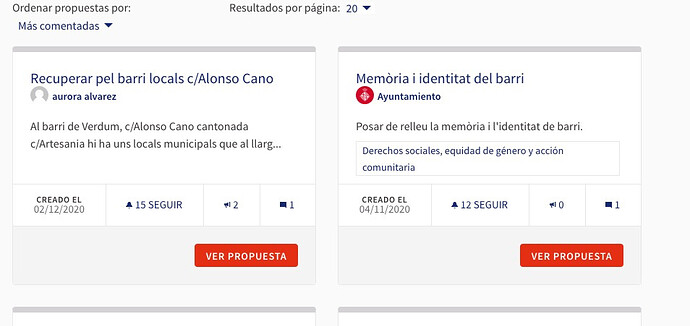In one of the forming consortia there are talks of using Decidim for deliberative projects. Could we perform SSNA on Decidim?
The general problem
SSNA is a general method. In theory, given API access, it can operate on data coming from any platform. The full form (the second S in SSNA) happens when the different units of text analyzed are utterances in a conversational environment; that includes blogs, Twitter, fora, chats and many other media. In practice, however, “platform culture” matters.
For example, you could in theory do SSNA on a chat log… but chats make low quality ethnographic material. Most posts are super-short things like “OK”, “LOL”, “Thanks man” and similar. Even those that are not will tend to rely heavily on contextual knowledge, because the writer knows exactly who is reading. Writers of blogs or long-form fora write at least in part for an audience of strangers, hence they take time to develop their arguments, justify their claims etc.
Additionally, the length of the post is a problem. As it is done on Edgeryders, SSNA induces an edge between two codes when they have been used to annotate the same post. If posts are very short, they end up being poor in codes, and therefore in connection between codes. The graph becomes very sparse. Of course, we could redefine our methodological assumptions, and decide that two codes are connected if they occur in posts that were written within 10 minutes of each other. In this case, we could even have directed co-occurrence edges, with the code annotating the later post liking back to the code annotating the earlier post, but not vice versa. But that’s tricky: any methodological assumption needs to be justified. We have made a justification for those we currently use, but any new one would need to be scrutinized from scratch.
On Decidim
Now, to Decidim. Decidim is not mainly a forum: it incorporates decision making tools. It seems more of a management tool applied to democracy (“a political network to make decisions… organize meetings, take pledges…”) than a tool for collective intelligence and sensemaking. In fact, they also market it to corporations, which are not democracies.
I tried to join a civic one, which is probably the most famous one: https://decidim.barcelona. This contains several (currently 6) high-level participatory processes, which in turn contain proposals, which can be (1) commented, (2) upvoted, (3) “followed” (you get notifications on updates). The highest number of comments on a proposal of the * Plan Barcelona Interculturalidad* which is one of the six, is… 0, out of 296 proposals. Another of the high-level processes, the Plan de Barrios, is divided into several lower-level processes corresponding to each neighborhood (barrios). The maximum number of followers for a single barrio is 23. This barrio has 96 proposals: two of them have 1 comment each, 94 proposal have no comment. The maximum number of upvotes is 2.
Conclusion: on the up side, Decidim supports conversation on proposals. The conversation is threaded. The editor is very basic: no Markdown, no HTML. Currently, the length of comments is limited to 1,000 characters (this is probably easy to fix, since the code is open sourced.
On the down side, even on its home turf, Decidim has not managed to built a brilliant track record for participation. Commenting is almost non-existant in Barcelona – but this can be put down to the designers having priorities other than sensemaking through conversations. But also upvoting is sparse. Proposals, on the other hand, are many – but it feels like proponents are shouting in the dark, a democracy without a demos.
Decidim also contains other things, including a petition platform and 165 organos de participación. These are like neighborhood councils, city committes on single issues (like migration, or children) and so on. Here is a comparison:
| (on 2020-12-17) | decidim.barcelona | edgeryders.eu |
|---|---|---|
| Accounts | 44,266 | 6,436 |
| Participatory processes | 15 | / |
| Organs of participation | 165 | / |
| Proposals | 24.574 | / |
| Threads | / | 14,279 |
| Comments | 26,786 | 73,109 |
Over 10,000 of the proposals are “accepted”, so I imagine decisions are made. Decidim measures its worth on this kind of activity, not so much on conversation. So, again, not really a tool for sensemaking.
Does anybody know better examples?
